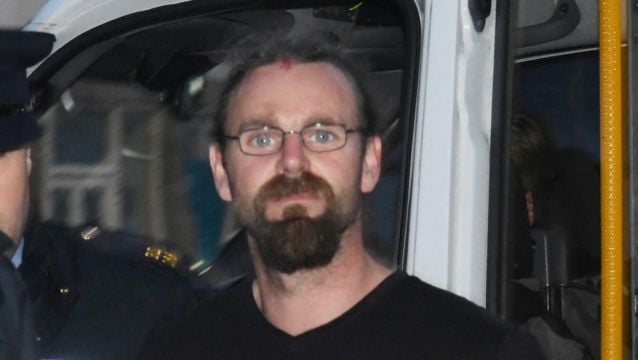Updated: 4pm
A jury at the Central Criminal Court has failed to reach a verdict in the trial of Stephen Silver, who accepts that he shot Detective Garda Colm Horkan 11 times but denies his murder.
The jury were asked to consider whether Mr Silver was suffering from Bipolar Affective Disorder at the time of the shooting and whether his condition substantially reduced his responsibility for the killing.
Mr Silver's lawyers argued he should be found not guilty of murder but guilty of manslaughter due to diminished responsibility.
The seven men and five women spent just under nine hours considering their verdicts over three days before revealing they had a disagreement that they were not able to resolve.
The case will now be listed again at the Central Criminal Court on December 9th and Mr Silver will be sent forward for a retrial. He has been remanded in custody until that date.
Mr Justice Paul McDermott thanked the jury for their service over the last number of weeks.
“This was a very difficult case in detail and evidence and the nature of the case itself. It was very disturbing for everyone, especially for people such as yourselves who had to be judges,” the judge said.
“I want to thank you for your application, attention, and dedication, and for the significant contribution you have given,” he added, excusing the panel from jury service for the next 10 years.
Mr Silver (46), a motorbike mechanic from Aughaward, Foxford, Co Mayo, had pleaded not guilty to the murder of Det Garda Horkan, knowing or being reckless as to whether he was a member of An Garda Síochána acting in accordance with his duty.
Diminished responsibility
The accused had pleaded guilty to manslaughter by reason of diminished responsibility, at Castlerea, Co Roscommon on June 17th, 2020.
Dr Brenda Wright, a psychiatrist called by the defence, said Mr Silver was suffering at the time from Bipolar Affective Disorder, a mental illness that diminished his responsibility.
Professor Harry Kennedy, who was called by the prosecution, disagreed with Dr Wright and said Mr Silver's mental capacity was intact at the time of the killing.
Mr Justice Paul McDermott told the jury that for the accused to be convicted of murder, the prosecution must prove that he unlawfully killed Gda Horkan and that at the time he intended to kill or to cause serious injury.
If was guilty of an unlawful killing but without the necessary intent, the judge said, they must find him not guilty of murder but guilty of manslaughter.
If they found that he had the necessary intent they must then consider whether the prosecution has proven beyond a reasonable doubt that Gda Horkan was a member of An Garda Síochána acting in the course of his duty and that Mr Silver knew that or was reckless as to whether he was a garda acting in the course of his duty. If all those ingredients had been proven, then the prosecution would have made out the case for "capital murder", the judge added.
The defence of diminished responsibility arises, Mr Justice McDermott said, where a jury is satisfied that murder or capital murder has been proven. For the defence to succeed, he said, the accused must first establish that he was suffering from a mental disorder.
He reminded the jury that there was evidence that Mr Silver has a diagnosis of Bipolar Affective Disorder.
He said the accused must also prove that he had relapsed or was relapsing into an acute phase of the illness at the time of the shooting such that it "substantially reduced his responsibility for the acts at the time".
If the jury had accepted that it is more likely that he was suffering from a mental disorder, such that it substantially diminished his responsibility, then that would reduce murder or capital murder to manslaughter, the judge said.







